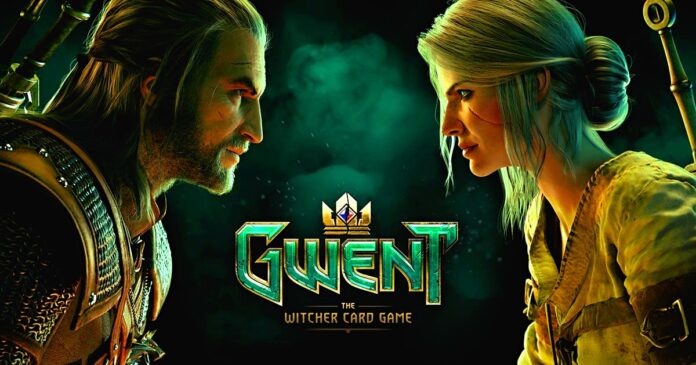The latest The Witcher game relies on maps instead of open world. We”ve known that this can work since Thronebreaker. But the new roguelike format is not convincing.
You, the GlobalESportnews readers, love The Witcher universe. Of course, after all, there is hardly any other fantasy world that seems so relentlessly adult and merciless. So it should come as no surprise to anyone that 91 per cent of you voted for us to deliver a review of the latest Witcher game, Gwent: Rogue Mage, as soon as possible.
No sooner said than done. As a huge fan of the multiplayer version of the card game, I jumped into the freshly released single-player expansion last weekend full of anticipation. And now I am left completely disillusioned.
What CD Projekt has done to a great card game
To get you started, here”s a brief explanation of what Gwent is all about: In this card game, you and your opponent take turns playing units, items and spells to score as many points as possible on your side of the board.
Thanks to hundreds of different cards, you can create countless combos and synergies that will make your score soar or sabotage your opponent”s over the course of a game. “Collecting points” sounds unspectacular at first, but in the multiplayer version Gwent: The Witcher Card Game it offers incredible depth and many tactical possibilities.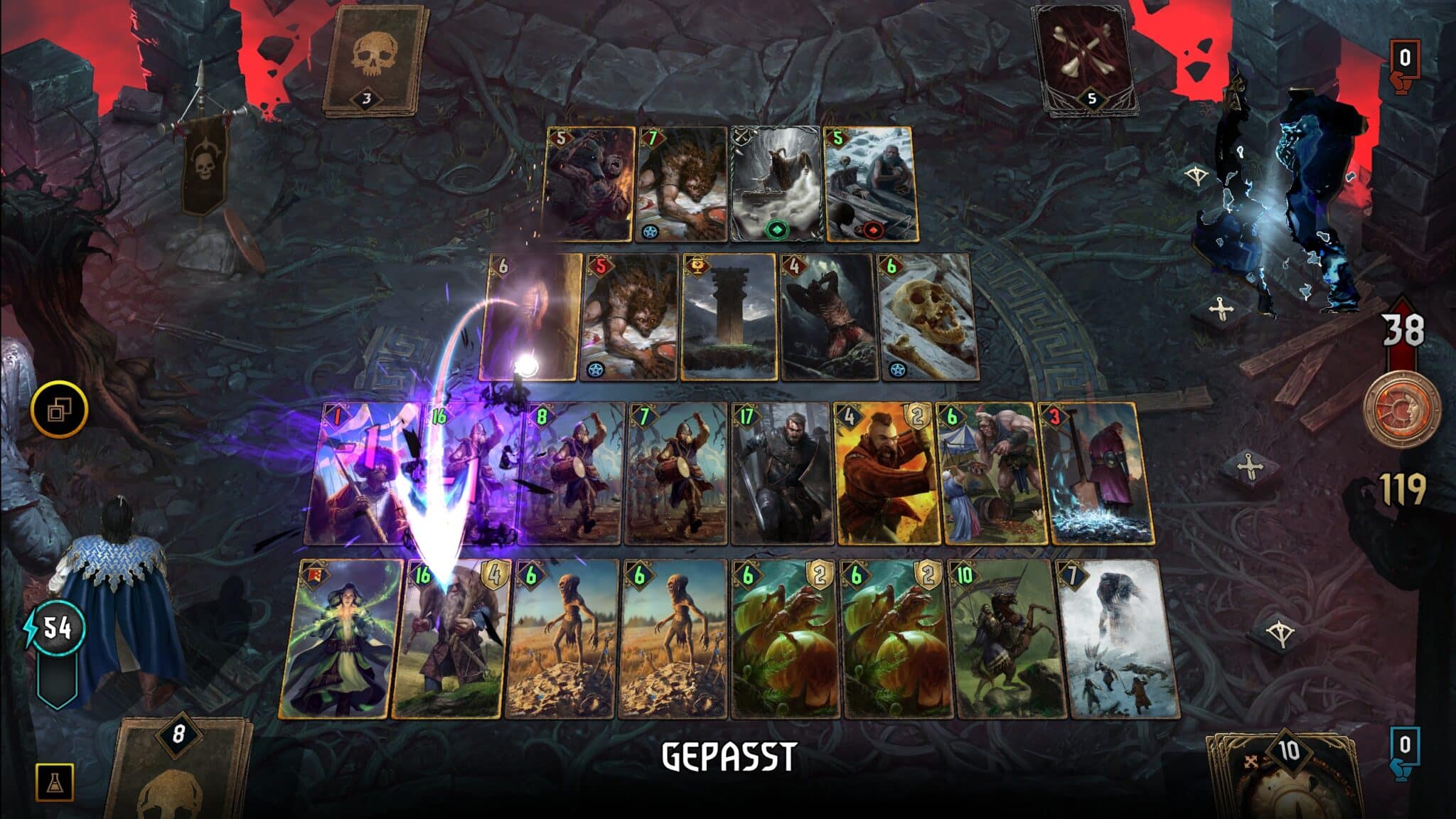
That you can also make a great single-player game based on this game principle was proven by Thronebreaker: The Witcher Tales. Here, an exciting story about war, betrayal and intrigue was told. Gwent: Rogue Mage, however, belongs to the roguelike genre and is strongly reminiscent of genre representatives such as Slay the Spire.
Instead of following a linear story campaign, you choose a path on the world map by mouse click, which leads you to battles, random events and various upgrades until you eventually end up with a boss enemy.
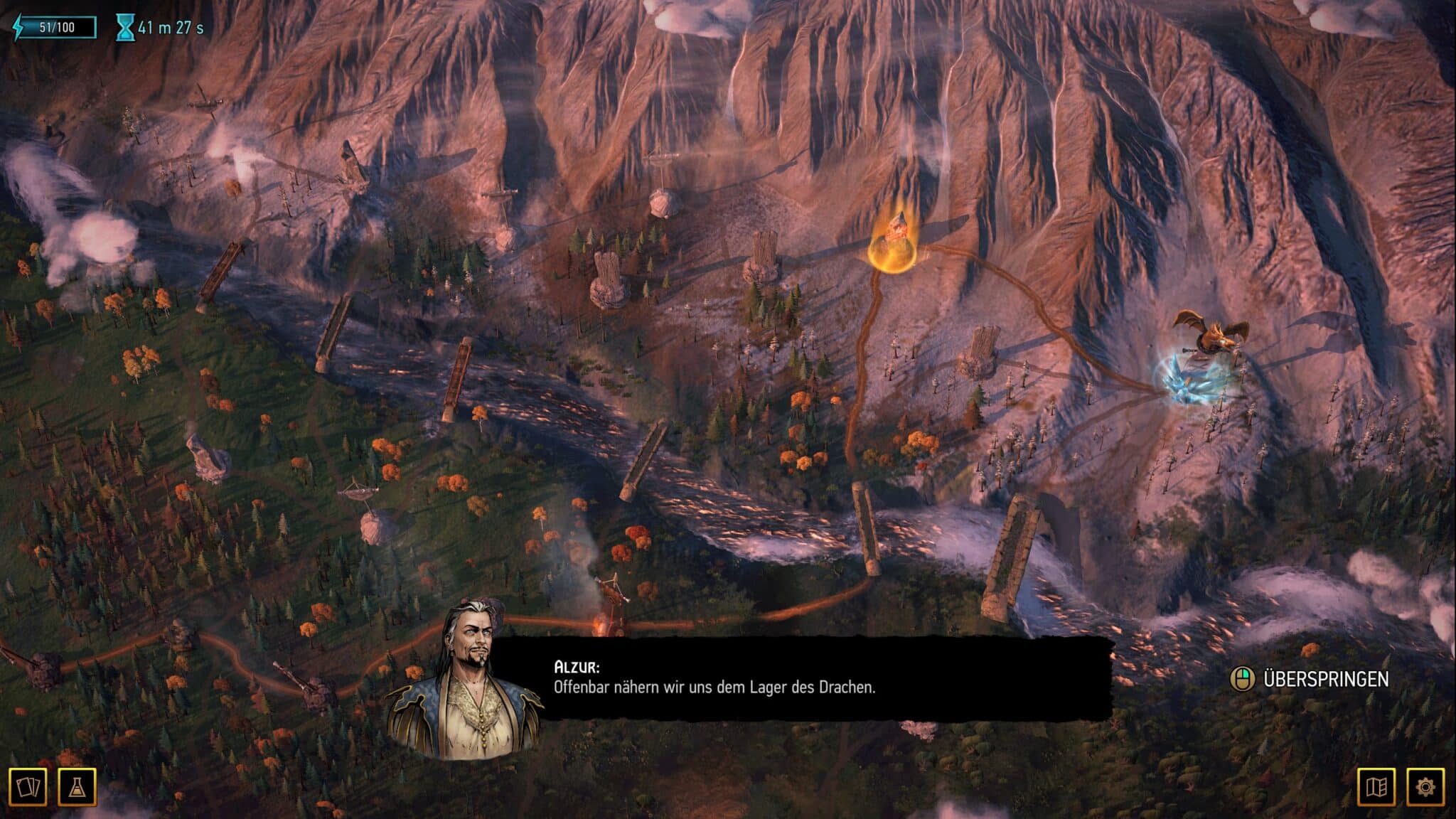
You must hunt them down so that your character – the mage Alzur – can harvest their mutagens and inject them into human test subjects to eventually create the first sorcerer. The shallow plot is told in extremely generic cutscenes, but the English-only voice actors do a good job.
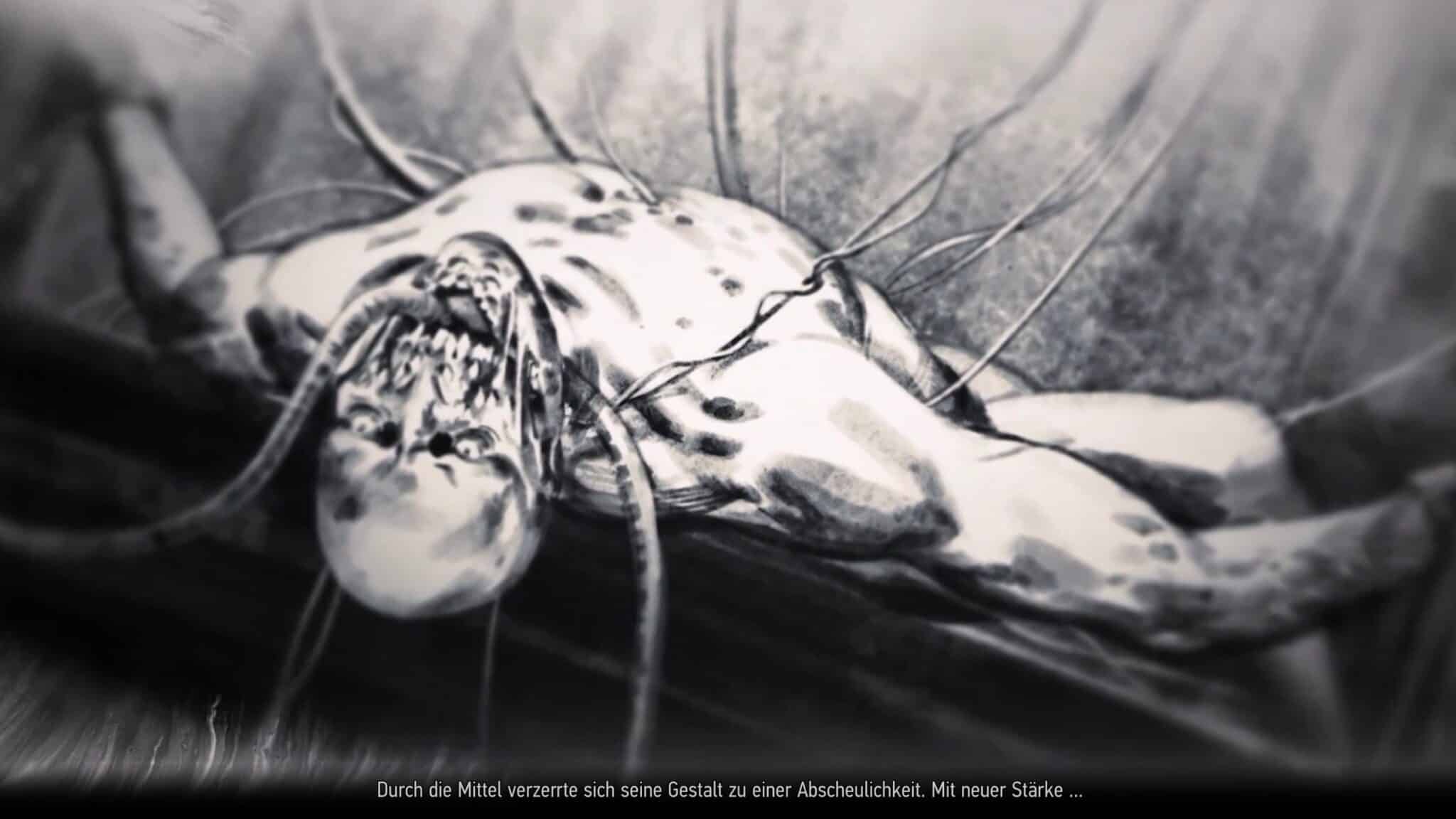
Hades, for example, has masterfully shown that you can also tell a great story in the roguelike format. But according to the developers, that was never the point, the motto of Rogue Mage is “gameplay first”.
Gwent and Roguelike don”t go together
Due to the roguelike format, you will fight around seven to twelve battles in each run, depending on the chosen path. Since a regular Gwent game tends to last longer than twenty minutes, the developers have significantly shortened the lengthy games and reduced them to one round – thus destroying almost everything that makes Gwent so great.
The three-round format gives the scoring an enormous strategic depth. You can prepare powerful combos over several rounds or rely on risky manoeuvres such as deliberately losing a round in order to turn the game around at the end.
But all that goes down the drain in Rogue Mage. Of course, it”s still all about putting together a strong deck full of synergies. But a lot of tactics are lost due to the abbreviated format. The only strategic component that really remains is to play your cards at the right time.
You have a unit that strengthens neighbouring cards every turn? Then get it out early to get the most effect. Your card causes a lot of damage to an enemy unit? Then only play it as soon as your opponent also has a strong unit on the board, so that no excess damage is lost. This is still fun at first and easily accessible, especially for beginners, but in this form it also quickly becomes boring.
This is also because Rogue Mage is simply not a good roguelike: In other roguelike deckbuilders, the inherently repetitive game concept is loosened up by different classes, areas and enemies. Here, however, there is only one and the same area with always the same enemies and events – only the boss changes after each successful round.
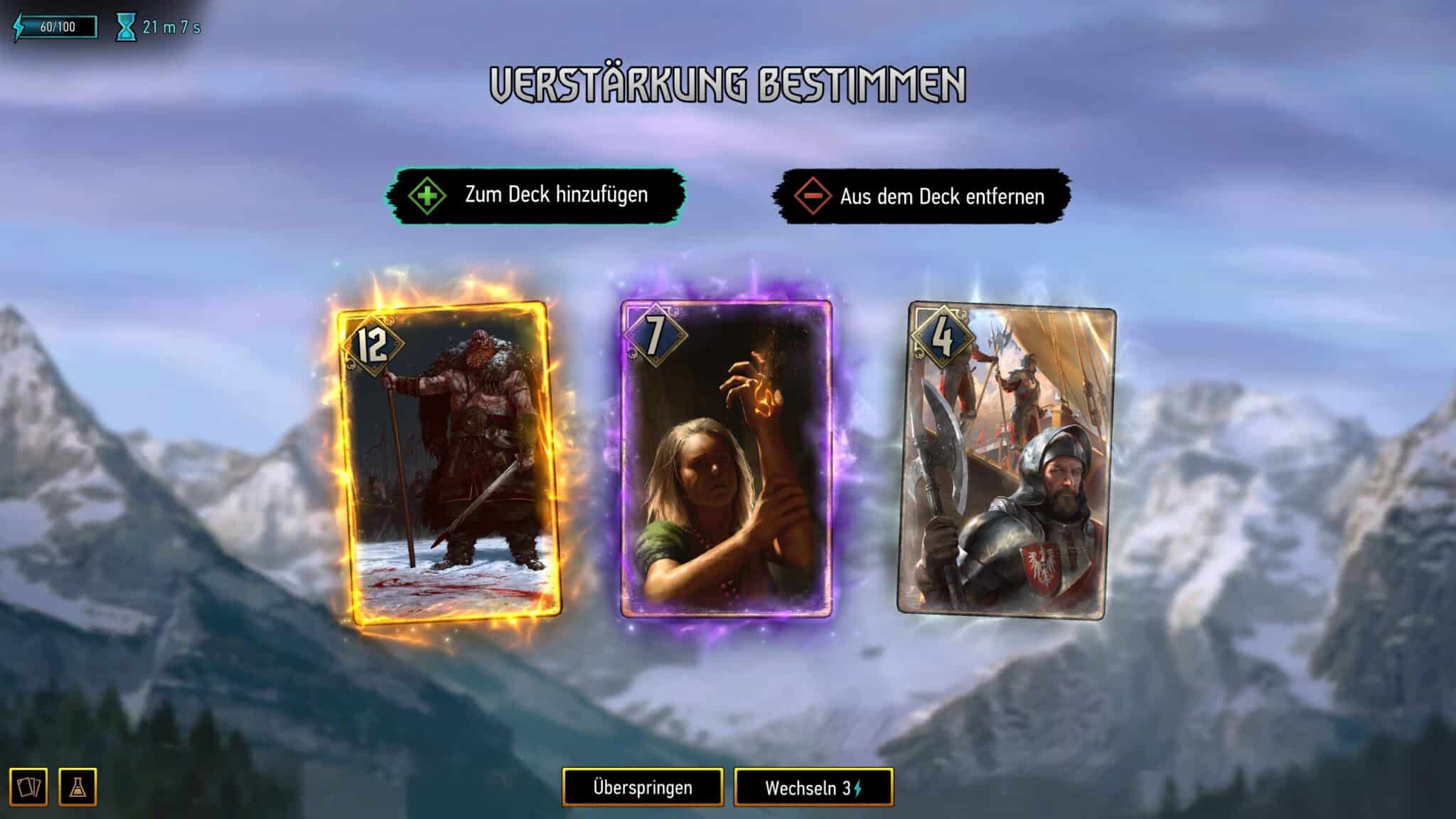
Building your deck is also extremely limited: while there are four different starter decks to unlock, these nail you down to a certain play style right from the start of the game. In competitors such as Slay the Spire, on the other hand, each class offers many worthwhile paths towards which you can develop your deck.
Whether you can succeed in the end is determined by the random generator, which lets you choose randomly selected cards after a victory. If there are no rare gold cards here, even the pros will be doomed in the boss fight.
In the end, Rogue Mage simply offers too little variety, too few customisation options and too little strategy – so it lacks everything that made Gwent one of the best card games for me.
My tip: Buy Thronebreaker if you don”t already own it. It”s regularly on sale on Steam and GOG for 7 euros and gives you a really exciting, 30-hour story. The Roguelike expansion, on the other hand, runs out of steam after only a fraction of that time.
Editor”s Verdict
Actually, Rogue Mage sounds like the perfect game for me. After all, I love Gwent and other roguelike deckbuilders like Slay the Spire, Monster Train or Gordian Quest. But what CD Projekt delivers here is not nearly enough to convince me. Not only does the tactical game principle no longer work properly when reduced to one round, but in the end there is simply too little in it. After three or four playthroughs, I had already seen everything, so to speak.
It is also questionable whether the game will be expanded through updates. Only four starter decks and what feels like a very small selection of cards are too few, even for ten euros. Legends of Runeterra shows how to do it right. Here, with the Path of Champions, you get a polished roguelike mode that works better in every way – and completely free of charge.

